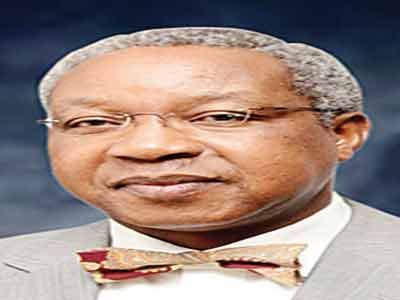 According to Osten Olorunsola, Director, Niger Delta E&P, and Former Director of the Department of Petroleum Resources, “the laws around gas development and market are unique, and thus, operators should not treat gas in the same way they treat oil”. CNBC Africa’s Didi Akinyelure caught up with him.
According to Osten Olorunsola, Director, Niger Delta E&P, and Former Director of the Department of Petroleum Resources, “the laws around gas development and market are unique, and thus, operators should not treat gas in the same way they treat oil”. CNBC Africa’s Didi Akinyelure caught up with him.
OLORUNSOLA: Beyond gas, Nigeria is so well positioned, when you talk of potential markets either in the downstream, electricity or gas;
the market for it is beyond Nigerian shores. The potential is huge.
AKINYELURE: You mentioned that the laws around gas development and gas markets are very different from oil and that operators should not be treating gas the same way they are treating oil. Emphasize on the point.
OLORUNSOLA: We evolved as an oil company and even companies that came after that as well. All we hear is International Oil companies; International gas companies are never mentioned. Gas actually became of value not too long ago, even to Nigerians and that is why a lot of us are finding it difficult to really understand the stance that the commercial arrangement for gas and the commercial mind-set to develop our market and commercialise gas is totally different from oil. Like I said before, Oil is a commodity, gas is a utility and the laws governing commoditisation is totally different from the laws governing utilities. You have to treat gas on a totally different set of laws, commercial set of understanding and commercial set of operating.
AKINYELURE: State the importance of collaboration and partnership in gas development.
OLORUNSOLA: Because the value chain is so long, there is need for development and development means exploiting for drilling and bringing the gas to the surface. It has to be transported through some set of infrastructure, processed and might also be sold through another set of infrastructure. There are so many joints across the value chain, therefore, the only thing that can be done is collaborate and partner. If that is not done, once a person drops the ball across the value chain, everybody loses.
AKINYELURE: Earlier, you said Nigeria is paying 10 million dollars in penalties when we should be a gas supplier.
OLORUNSOLA: We have a commitment to supply gas to West Africa through the West African gas pipeline and which we tried to do initially but of late, we have not been meeting our commitment for several reasons- Nigeria needs gas, you can’t be short of gas and then transfer gas to other countries, we have experienced security issues where some gas pipes were burst but an agreement is an agreement. If you don’t supply, you have to pay the penalty which we have been doing painfully and we shouldn’t be doing.
AKINYELURE: What about the importance of bankable customers and bankable projects in gas development.
OLORUNSOLA: One of the biggest gaps we have seen in the gas value chain is payment insecurity and one of the biggest culprits was the power holding company. In a situation where you cannot pay for the gas you are receiving, it will be difficult for the developers to be able to expand their portfolio. The problem is people have not learnt to keep to an agreement. For gas, the agreement is for a very long time, between 15 to 25 years at most and if you don’t pay, you can’t get supplies.
AKINYELURE: What are some of the policy changes that you would like to see come through which will support economic justification for gas?
OLORUNSOLA: We should allow the market place to be open, let the market determine the forces that make it happen. We also have a lot of deficit in infrastructure, we need to ramp on it, we should have infrastructure connections round the whole country which will make life a lot easier. Deregulation is another issue- operating the open access framework, where everyone is free to come into the market. It has to be enabling. If all these are done, whatever remaining hurdles are removed, the whole place will “explode” in terms of investments and all the problems will be a thing of the past.



